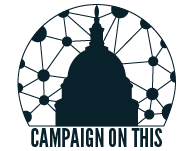The Dangerous Rhetoric: How Democrats’ Heated Language Against Trump Spiraled Into Violence
Since Donald Trump’s rise to political prominence, he has been the subject of intense criticism, much of it veering into extreme and violent rhetoric. From calls to “Resist” to public figures suggesting physical confrontation, this hostile language has escalated in ways that have had tangible consequences. For over four years, Democratic politicians, media figures, and activists have used increasingly heated language against Trump and his supporters, with some even crossing the line into violence.
The “Resist” Movement and Divisive Rhetoric
The “Resist” movement became a mantra for Trump’s political opposition from the moment he took office. At rallies, protests, and on social media, phrases like “Not My President” were common. Politicians such as Maxine Waters made incendiary statements urging their supporters to confront Trump’s allies, saying, “If you see anybody from that Cabinet in a restaurant, in a department store, at a gasoline station, you get out and you create a crowd, and you push back on them, and you tell them they’re not welcome anymore.”
While calls to resist a political figure are part of democratic discourse, the tone and aggression in many cases went beyond opposition. Some celebrities used particularly inflammatory language. Kathy Griffin’s notorious photoshoot, holding what appeared to be Trump’s severed head, sparked outrage across the political spectrum. Madonna, during the Women’s March in 2017, claimed she had thought about “blowing up the White House.”
Words Have Consequences: Escalation into Violence
The impact of this rhetoric has not remained in the realm of words alone. Violent acts have followed, including two assassination attempts against Donald Trump. Both perpetrators had histories of donating to Democratic causes and engaging with anti-Trump rhetoric. The use of extreme language, it seems, helped create a climate where violent action against a former president appeared justified to some.
In one attempt, a man was apprehended after allegedly plotting to assassinate Trump at one of his golf courses. He had been vocal in his opposition to Trump, echoing much of the rhetoric heard in mainstream media and from Democratic politicians. In another, an armed suspect was arrested near a Trump rally, again influenced by the anti-Trump atmosphere.
President Joe Biden has also contributed to this hostile environment. During one campaign event, he made the comment about putting Trump “in the bullseye,” a remark many found disturbing given the growing trend of violent political confrontations. When public figures use such language, it can send dangerous signals, encouraging extreme actions by individuals who may feel justified in committing violence.
The “Dictator” Label and Other Extreme Accusations
Among the accusations hurled at Trump, he has been labeled a “dictator,” “racist,” “tyrant,” and “wannabe fascist.” These accusations, though central to the Democratic Party’s critique of Trump, have largely been viewed by his supporters as politically motivated and exaggerated. For instance, Trump’s policies on immigration and his handling of issues like the 2020 protests led to widespread condemnation, with critics often invoking terms that painted him as an authoritarian threat.
Yet, despite this extreme labeling, Trump made considerable inroads with minority voters. In 2020, Trump increased his support among Black voters from 8% in 2016 to 12%, and among Latino voters, his support grew from 28% in 2016 to 32% in 2020. His administration’s economic policies, which saw historically low unemployment rates for minorities, and his criminal justice reform efforts were key factors behind this shift. These results challenge the widespread media portrayal of Trump as a racist, and it’s clear that many minority voters did not view him that way.
Real-World Impact: The Assassination Attempts
Perhaps the most disturbing manifestation of this hostile climate has been the two assassination attempts against Donald Trump. In both cases, the perpetrators were individuals who had been deeply influenced by the political rhetoric circulating in mainstream media and from Democratic politicians.
In one attempt, a man armed with a gun attempted to breach security at one of Trump’s golf courses, allegedly with the intent to kill him. In another incident, a suspect was arrested near a Trump rally, armed and with a history of anti-Trump social media activity. Both individuals had ties to Democratic donations and had expressed anti-Trump sentiments in the past.
While these acts of violence were thwarted, they highlight the very real consequences of incendiary rhetoric. The normalization of violent language—whether in the form of media coverage, political speeches, or social media discourse—can push individuals to act on extreme beliefs. These assassination attempts serve as sobering reminders of the power of words, especially when they’re echoed by political leaders.
Holding Democrats Accountable for the Toxic Political Climate
As the 2024 election looms, many voters are beginning to reckon with the toxic political climate that has been cultivated over the past eight years. The extreme rhetoric, encouraged by some Democratic politicians and echoed across media platforms, has created an atmosphere where violence is increasingly normalized. For some voters, this election will serve as an opportunity to hold Democrats accountable for the division they have fostered.
The left’s aggressive approach to tearing down Trump has not only poisoned political discourse but has also created a climate where real-world violence is a growing concern. Regardless of one’s opinion of Trump, encouraging violence—whether directly or indirectly—is dangerous and undermines the democratic process.
Conclusion
The current political climate is deeply polarized, and much of the blame can be attributed to the dangerous rhetoric used by political leaders and media figures. The two assassination attempts against Donald Trump, both linked to individuals influenced by anti-Trump rhetoric, are proof that words have consequences. Whether it’s labeling Trump a “dictator” or encouraging supporters to confront Trump allies in public, this level of hostility has only deepened divisions in the country.
As the nation moves towards another election cycle, it’s crucial that both sides reject violent language and focus on civil discourse. In November, Democrats will have to face the repercussions of the divisive climate they helped create over the past eight years. Regardless of who is in office, political violence should never be normalized, and it’s time to prioritize the preservation of democratic principles over political warfare.



